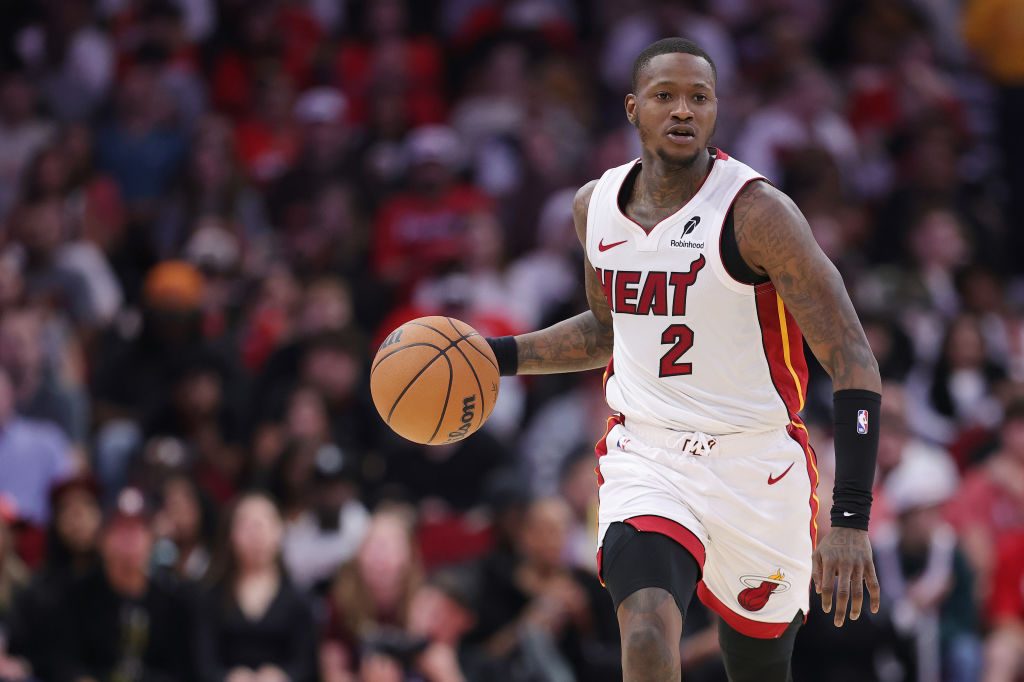The FBI this week arrested Miami Heat basketball player Terry Rozier and Portland Trail Blazers coach Chauncey Billups. The two NBA names were among over 30 to go down in total over the probe, including people with connections to three major crime families. FBI Director Kash Patel called it “a historic arrest across a wide, sweeping criminal enterprise that envelops both the NBA and La Cosa Nostra” .
Billups got caught up in rigged poker games backed by the mob and shared info with gamblers about his team’s plan to “tank” the remainder of the basketball season to secure a high draft pick. Rozier’s case involves actual game manipulation, the kind where you throw the ball to nobody or miss shots that should go in. These aren’t fringe players or benchwarmers. Billups spent 17 years in the league and made the Hall of Fame. Rozier has had a solid 10-year career and still plays significant minutes for a playoff team. When names this big fall, it means the problem runs deeper than anyone wants to admit.
Of course, none of this should surprise anyone who’s been paying attention since Murphy v. National Collegiate Athletic Association struck down the Professional and Amateur Sports Protection Act in 2018. PASPA had kept sports betting illegal in most states since 1992, and the Supreme Court killed it with talk about states’ rights and federalism. What followed was entirely predictable: a gold rush of legalized gambling that transformed American sports into something unrecognizable.
That transformation happened swiftly. One day we were watching basketball, and the next we were watching basketball with live odds flashing on screen, commentators discussing point spreads, and something called a “betcast” that ignores the actual game to focus on whether someone will hit their over on three-pointers. ESPN doesn’t just cover sports anymore — it runs ESPN BET Sportsbook, whose logo was hastily removed during the network’s coverage. Sports leagues which once suspended players for being seen near casinos now have lucrative partnerships or advertising deals with sportsbook apps such as FanDuel and DraftKings.
When you surround hyper-competitive athletes with wall-to-wall gambling propaganda, some will inevitably figure out that they control the product everyone’s betting on. A missed free throw here, a turnover there — in a sport with hundreds of possessions per game, the opportunities for manipulation are endless. Basketball has always been uniquely vulnerable to this: the Fifties college point-shaving scandals happened for a reason. A single player can influence outcomes far more easily than in football or baseball. High scores mean constant scoring opportunities, each one a potential bet that can be influenced.
The Billups case provides another angle, namely that even legends aren’t immune to non-stop gambling messaging. Here’s a Hall of Famer, who made tens of millions playing basketball, allegedly getting mixed up with crime family-backed poker games. The Rozier situation appears worse still, since it’s actual in-game sandbagging of the kind that destroys the sport’s integrity. Patel’s investigation has now shown that gambling of all kinds is embedded in the league’s DNA, and last year’s Jontay Porter case increasingly looks like the tip of an iceberg.
The solution isn’t complicated, but — as with banning access to the gambling apps themselves — it’s politically impossible. Ban the advertisements that blanket every NBA broadcast. Get the sportsbooks out of the NBA arenas. It’s no longer harmless entertainment when the FBI is arresting Hall of Famers for mob connections. The league could fund high-profile treatment programs with ill-gotten revenues from gambling, and now has an opportunity to participate in counter-marketing campaigns that make betting look like what it is — a fool’s game where the house always wins. The NBA can’t investigate internal gambling corruption when it’s taking money from billion-dollar companies facilitating the bets.
These arrests won’t be the last. The FBI just showed us what retired NBA player and US senator Bill Bradley already knew when he oversaw the passage of PASPA in 1992. The only question now is whether NBA Commissioner Adam Silver will do anything about it, or whether he’ll keep pretending these are nothing more than isolated bad actors. If he chooses the latter option, what remains of the entire sport may crumble under the weight of its own corruption.











Join the discussion
Join like minded readers that support our journalism by becoming a paid subscriber
To join the discussion in the comments, become a paid subscriber.
Join like minded readers that support our journalism, read unlimited articles and enjoy other subscriber-only benefits.
Subscribe